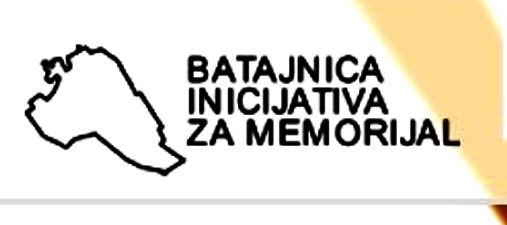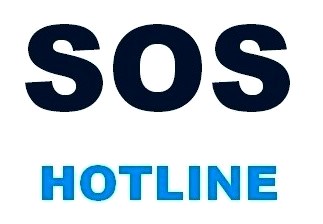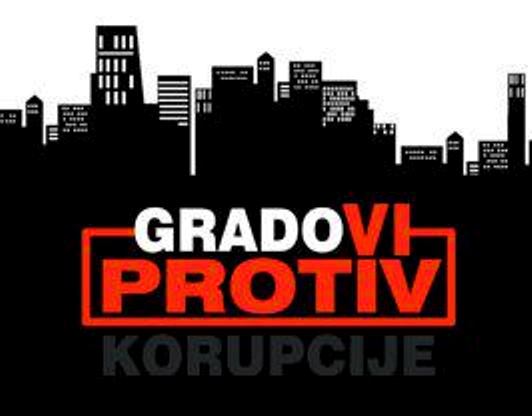Statut
In accordance with the provisions of Art. 11. and 12. of the Law on Associations (“Official Gazette of RS”, No. 51/09), at the Assembly of the Association held on 31 July 2013 in Belgrade, adopted the
STATUTE OF THE ASSOCIATION
"THREE POINTS"
Area of achieving objectives
Article 1
Objectives of the association
Article 2
The objectives of the Association are: scientific and professional research in the field of human rights, promotion of human rights and values of civil society through informative and educational activities, gathering scientists and experts in the field of human rights in order to create cooperation at the national and regional level, launching initiatives to improve the practice that refers to adopted human rights standards, as well as cooperation with domestic and foreign non-governmental organisations and institutions that dedicated their efforts to protection of human rights and ending of human rights abuses.
Article 3
In order to achieve its objectives, the Association shall in particular:
1) collect and process scientific and professional literature in the field of human rights, democracy and civil society;
2) enable this literature and information to be available to all that might be interested and implement other informative activities related to the stated objectives, in accordance with the law;
3) organise independently, or in cooperation with other organisations and institutions, expert meetings, seminars, discussions and other forms of education in the mentioned fields;
4) publish books and other publications on human rights, in accordance with the law;
5) cooperate with universities, scientific and professional associations and other organisations and institutions in the country and abroad engaged in promotion and protection of human rights;
6) provide consulting services in the process of drafting and implementing normative acts in terms of their full compliance with human rights standards
7) organise campaigns and create other initiatives to improve the practice of adopted human rights standards;
8) associate with local and international non-governmental organisations in order to achieve common goals;
Name and address
Article 4
The name of the Association is: Tri tačke
The Association will use the English title: Three Points
The Association is based in Belgrade.
The Association operates in the Republic of Serbia.
Conditions and method of membership and termination of membership
Article 5
Any adult individual that accepts the goals of the Association and the Statute, and that is recommended by one of the members can become a member of the Association.
Application for membership is submitted to the Assembly of the Association
Article 6
The decision on membership acceptance is made by the Assembly and the applicant is to be notified about the decision without delays.
A member may withdraw from membership by submitting a written statement of withdrawal.
Membership in the Association may be terminated due to prolonged inactivity of a member, non-compliance with the provisions of this Statute or damage made to the reputation of the Association.
The decision on termination of membership is to be passed by the Assembly, based on a reasoned proposal of the managerial board.
Rights, obligations and responsibilities of membership
Article 7
Member of the Association is entitled to:
1) participate, equally with other members, in achieving the objectives of the Association;
2) participate directly in decision making in the Assembly, as well as through the bodies of the Association;
3) elect and be elected to the bodies of the Association;
4) be timely and fully informed about the work and activities of the Association.
Member shall:
1) actively contribute to achieving the objectives of the Association;
2) participate, in accordance with the interest, in the activities of the Association;
3) pay the membership fee;
4) perform other duties entrusted by the bodies of the Association.
The internal organisation
Article 8
The bodies of the Association are the Assembly, the Director (the Association representative) and the Advisory Board.
Article 9
The Assembly is the highest ranked body of the Association and it consists of all its members.
The Assembly meets regularly once a year. Extraordinary session of the Assembly may be scheduled upon the reasoned proposal of the Director of the Association, as well as at the initiative of at least one-third of the Assembly members. The initiative shall be submitted to the Director of the Association in writing and it shall specify the issues to be considered.
The session of the Assembly is scheduled by the Director of the Association, by written notice on the place and time of the holding of the Assembly and the draft agenda. The session is chaired by a person who is, by public vote, elected at the beginning of the session.
Assembly:
1) adopts the Statute, as well as amendments to the Statute;
2) adopts the plan and program of work;
3) adopts other bylaws of the Association;
4) elects and dismisses the Director of the Association - the Association representative;
5) considers and adopts the reports of the Director of the Association;
6) considers and adopts the financial plan and report;
7) elects and dismisses members of the Advisory Board
8) decides on the amount of membership fee for the next year;
9) decides on status changes and the dissolution of the Association;
10) decides on joining alliances and other associations in the country and abroad.
11) decides which authorities are to be transferred in the competence of other bodies of the Association
The Assembly can adopt legally binding decisions if at least one half of the members are present.
The Assembly shall decide by majority vote of the members present.
The decision on amendments to the Statute, statutory changes and the dissolution of the Association requires a two-thirds majority vote of all members.
Article 10
The Director of the Association is also a representative of the Association.
The Director of the Association is the executive body of the Association that takes care of the implementation of the goals of the Association established by this Statute and by decisions of the Assembly.
The Director is a body of the Association consisting of one individual that is elected and dismissed by the Assembly.
The Director of the Association shall conclude contracts and undertake other activities in legal transactions on behalf of and for the account of the Association and shall have the rights and duties of the financial authority.
Article 11
Director of the Association:
1) manages the activities of the Association between two sessions of the Assembly and makes decisions of relevance for achieving the goals of the Association;
2) adopts the normative acts of the Association, except for ones whose adoption is in the competence of the Assembly
3) organises regular activities of the Association;
4) assigns individual members with specific tasks;
5) makes financial decisions;
6) decides on the opening and closing of regional and local representative offices and branches of the Association
7) decides to initiate the procedure for amendments to the Statute, on its own initiative or at the proposal of at least three members of the Association, and prepares a proposal of changes and amendments that is submitted to the Assembly for adoption;
8) decides on initiation of a procedure for compensation of damages in cases referred to in Article 25, paragraph 2, of the Law on Associations and, if necessary, appoints a special representative of the Association for that procedure;
9) decides on other issues which are not, either by law or by this Statute, within the competence of other bodies of the Association,
Article 12
The Advisory Board is considering all issues of importance to the Association and provides the Director of the Association with suggestions and advice.
Members of the Advisory Board are elected by the Assembly of the Association. Members of the Advisory Board are selected amongst distinguished legal experts and prominent fighters for human rights and democratization.
The meetings of the Advisory Board are chaired by the Director of the Association.
Transparency
Article 13
The Director of the Association takes care of regular informing of members and the public about the work and activities of the Association, either directly or through internal publications, or by press releases, information on an appropriate website or in another appropriate manner.
Annual accounts and reports on the activities of the Association shall be submitted to members at the meeting of the Assembly of the Association.
Cooperation with other organisations
Article 14
In order to achieve its goals, the Association establishes contacts and cooperates with other professional, scientific, educational and similar associations and organisations in the country and abroad.
The Association may join international associations for the protection of human rights, and that decision is made by the Assembly.
Methods of raising funds for achieving goals and use of those funds
Article 15
The Association raises funds from membership fees, voluntary contributions, donations, gifts, financial subsidies and in other manners in accordance with the law.
Economic activity
Article 16
The association raises funds through sale of its publications, meaning it performs economic activity: 5811 - publishing books and publications.
The Association can start performing this activity only after the completed entry into the Register of Business Entities.
Article 17
The Association can also raise funds from the registration fee for seminars and other forms of education in the field of human rights, from providing consulting and research services, as well as from the sale of books, brochures, manuals and other publications created in the framework of implementation of activities, as well as from other related forms of economic activities that the Association performs.
Profits made by carrying out economic and other related activities may be used solely for achieving the goals of the Association, including the costs of the regular work of the Association and its own participation in financing of certain projects and activities.
Termination of the association
Article 18
Association shall cease to operate by the decision of the Assembly, when the conditions for achieving the objectives of the Association cease to exist, as well as in other cases specified by law.
Treatment of property of the association in the event of termination of the association
Article 19
In case of dissolution, the assets of the Association shall be transferred to a domestic non-profit legal entity established with purpose to achieve the same or similar objectives, that is, with its decision on termination the Assembly shall determine to which entity the property is transferred to in accordance with the law.
The appearance and content of the seal
Article 20
Article 21
Article 22




